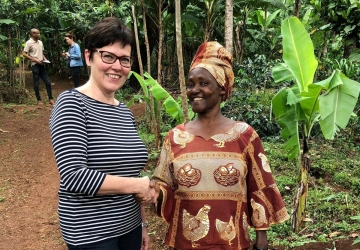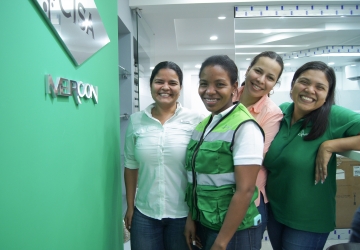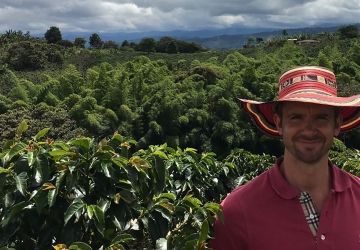What does it mean that all Paulig coffee comes from sources that have been verified sustainable?
Sustainability is a top priority for Paulig in the sourcing of coffee. It is the key to sustainable development. We can only ensure quality and great flavour through sustainable action. Sustainable development spans all our operations, and we take care of the entire process, from the coffee-producing countries and farmers’ working conditions to the cup of coffee in the consumer’s hand. Our sustainability work focuses on human rights, the environment and sustainable farming, and we ensure that these principles are followed by buying certified coffee or relying on our verified sustainable partnership programmes that satisfy all the sustainability criteria.
Certification is a great way to verify sustainable sourcing, which is why the majority of our coffee is certified. In addition to certificates, we use carefully selected partnership programmes because we want to be genuinely present in the countries of origin; listening to people, taking part in discussions and developing local communities. There is no one way to promote sustainability. Instead, sustainability work comprises different methods and tools that help us secure a bright future for coffee - continued availability and profitability for farmers.
We have partnership programmes with International Coffee Partners, Coffee & Climate, Fairtrade and coffee export companies. The partnership programmes where we buy our coffee from are verified sustainable. Some of them are certified, while others are audited by us or by a third party, following Paulig’s Code of Conduct. Because sustainability can only be achieved through constant improvement, we will complement the verification process in all our coffee sourcing programmes with independent third-party audits this year.
We have supported nearly 100,000 coffee farmers through our partnership programmes. Our programmes have improved the livelihoods of numerous coffee farmers and provided children with better educational opportunities. Our partnership programmes also include sharing best practices of adjusting to climate change.
In Tanzania, for instance, we have supported 25,000 local smallholder coffee farmers through International Coffee Partners and constructed policies related to entrepreneurship and cooperation that can then be duplicated throughout the country. In Nicaragua, we have worked with the export company Mercon, renovating the school in San Jose De La Luz and providing the means to obtain clean drinking water. In Colombia, we are cooperating with a local export company ECOM and focusing on teaching the best farming procedures. In Costa Rica, we have a farmer community in cooperation with Volcafe where we also conducted a water project analysing drinking water and the water quality of the water treatment plant.
It is important for us to know the origins of our coffee profoundly. This will give us information on matters related to the quality of the produce and the ethics of the supply chain. It also helps us ensure the effective functioning of the production and delivery chain as well as solve any problems that may occur in it.






